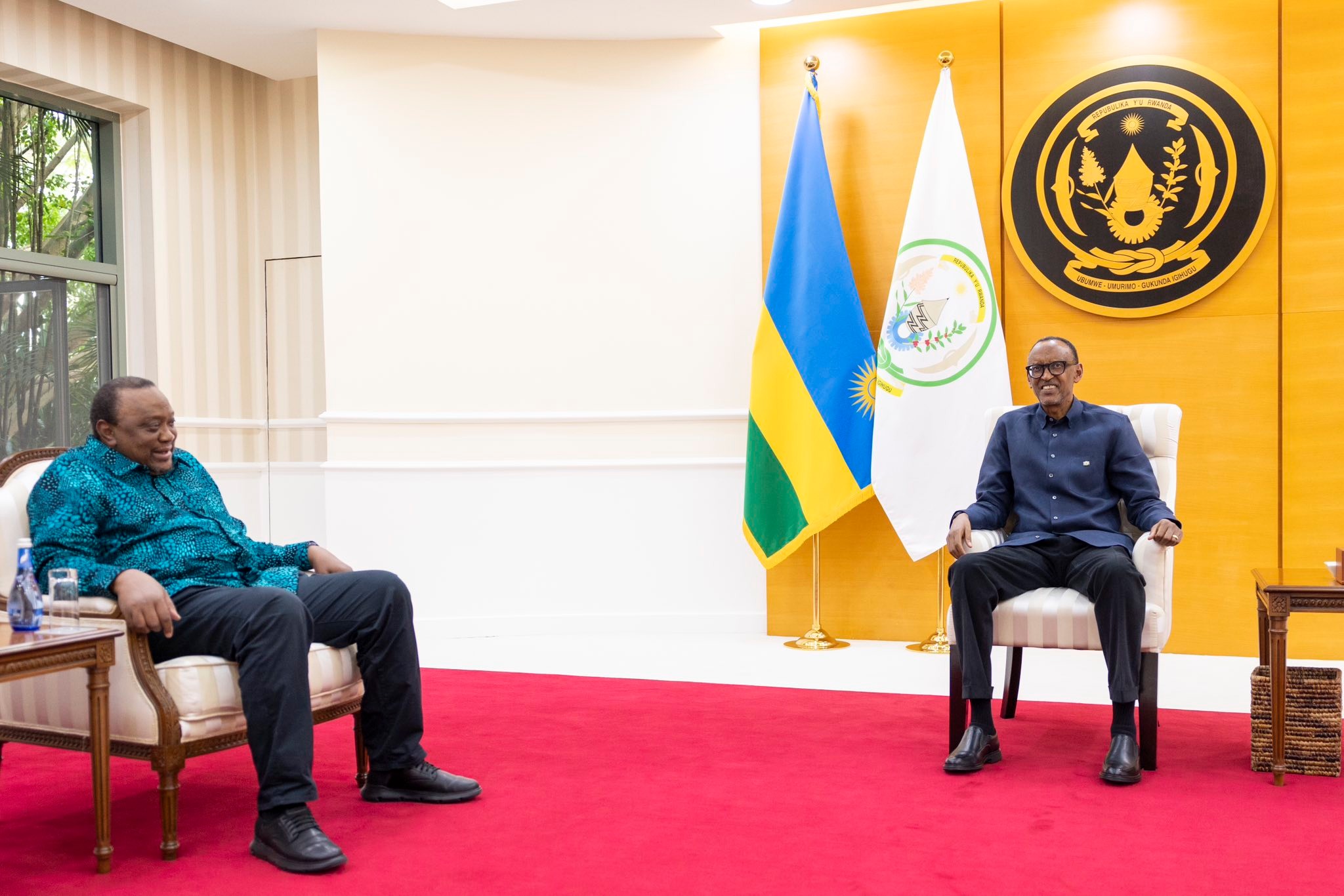
Kagame, Uhuru discuss Eastern DRC peace push after Washington breakthrough » Capital News
KIGALI, Rwanda, Jul 12 – President Paul Kagame of Rwanda received former Kenyan President Uhuru Kenyatta at Urugwiro Village on Friday in a high-level meeting aimed at reinforcing regional peace efforts in the volatile eastern Democratic Republic of Congo (DRC).
Kenyatta, who serves as one of the East African Community (EAC) and Southern African Development Community (SADC) facilitators for the DRC peace process, held talks with Kagame on achieving lasting stability in the region.
According to a statement from the Rwandan Presidency, the two leaders discussed “ongoing efforts to achieve durable peace in eastern DRC and address the root causes of the conflict.”
The meeting comes just weeks after Rwanda and the DRC signed a landmark peace deal in Washington on June 27.
Brokered with significant backing from the United States, the agreement calls for the “disengagement, disarmament, and conditional integration” of armed groups operating in eastern DRC — a region long plagued by cycles of violence, rebel insurgencies, and geopolitical tension.
While details of the Washington deal remain limited, it was lauded by US President Donald Trump as a “glorious triumph.”
Speaking from the Oval Office alongside Vice President J.D. Vance, Secretary of State Marco Rubio, and African delegates, Trump declared: “Today, the violence and destruction come to an end, and the entire region begins a new chapter of hope and opportunity.”
Despite the optimism, skepticism lingers.
Past peace initiatives have collapsed under the weight of deep-rooted mistrust and competing regional interests. Rwanda’s role in the conflict remains a major flashpoint, with Kigali repeatedly denying allegations of backing the M23 rebel group, despite mounting evidence and international pressure.
Rwanda maintains that its military presence in eastern DRC — estimated at 7,000 troops — is strictly defensive, aimed at containing the FDLR, a Hutu militia linked to the 1994 genocide.
The FDLR’s continued presence is “of utmost concern” to Kigali, which accuses Kinshasa of covertly supporting the group — a claim the Congolese government firmly denies.
Tensions flared ahead of the Washington deal’s signing, with Rwanda’s Foreign Minister Olivier Nduhungirehe publicly condemning the leak of the agreement’s draft and accusing other parties of breaching confidentiality.
Controversy also surrounds the language in the agreement. While Congolese officials claim the deal includes a commitment to the withdrawal of Rwandan troops, Rwanda insists the term “withdrawal” does not appear in the final document — instead, the word “disengagement” was used, reportedly to provide flexibility in implementation.
Friday’s meeting between Kagame and Kenyatta is seen as part of a broader diplomatic effort to sustain momentum behind the peace accord and avert another collapse.
However, despite Kigali and Kinshasa agreeing to return to the negotiating table, major challenges remain.
The M23, born out of a failed peace process more than a decade ago, now controls key eastern cities including Goma and Bukavu, and has displaced hundreds of thousands in a brutal new offensive.
Post Views: 2